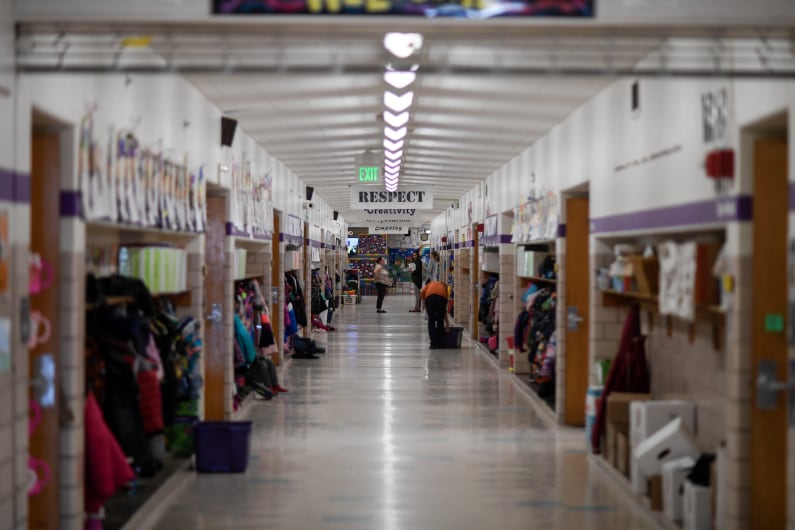Denver school principals and assistant principals will now be able to negotiate their salaries, how they are evaluated, and whether they can strike.
In a 6-1 vote some Denver school board members called “historic,” the board on Thursday recognized a new principals union called the Denver School Leaders Association. The aim of the union, according to its organizers, is to serve as a collective voice for school leaders in Denver Public Schools and work with the district to dismantle institutional racism.
“Thank you for believing in your leaders and listening to our voices,” said Pam Kirk, a 19-year Denver Public Schools educator who serves as principal of Southmoor Elementary School.
Before voting to recognize the union, board members debated an amendment introduced by Angela Cobián that would have prohibited the principals from going on strike.
Cobián said that although she supports unions, and her father is a member of a union for construction equipment operators, she believes managers who hold “positional power,” such as principals, shouldn’t be allowed to strike.
“A strike is a tool for people who don’t have positional power,” she said.
The Denver teachers union went on strike for three days in February 2019 for higher wages and a new compensation system that largely eliminated pay-for-performance bonuses.
Board member Barbara O’Brien joined Cobián in supporting the amendment. It ultimately failed.
Cobián voted to recognize the union even without the no-strike clause, but O’Brien did not. She said she wanted to see the final negotiated contract first. “I don’t think a governing body should commit to a path before we see what it really looks like on paper,” O’Brien said.
Union Co-President Cesar Rivera, principal at Samuels Elementary School, said the union has 204 members. The resolution lists several topics to be negotiated between the principals and the district. They include salary and benefits, principal evaluation procedures, and the waivers that exempt schools with “innovation status” from certain state and district rules.
Board member Scott Baldermann, who helped craft the resolution, called the vote to approve it one of the most important the board has taken. If principals feel more supported and heard, more will stay in their jobs, which will benefit students for generations, he said.
A critic of school choice policies he says create competition, Baldermann also hailed the move as “another step toward the ending of the reforms from the past 15 years that encouraged competition between school leaders and often discouraged cross-school collaboration.”






